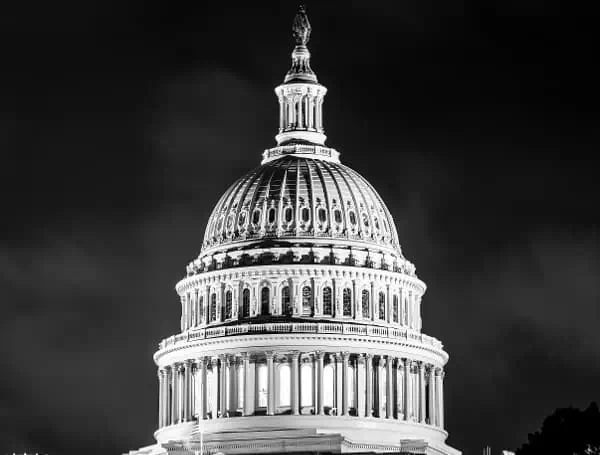The United States government has lost its last remaining AAA credit rating, with Moody’s Ratings downgrading the country to its AA category on Friday evening. The decision, driven by concerns over rising debt burdens and high interest rates, marks a critical juncture for the nation’s fiscal standing.
“This one-notch downgrade on our 21-notch rating scale reflects the increase over more than a decade in government debt and interest payment ratios to levels that are significantly higher than similarly rated sovereigns,” Moody’s stated in its official announcement.
READ: Trump Appoints Archbishop Who Banned Pelosi From Communion To Religious Liberty Commission
This downgrade follows similar actions by other major ratings agencies, Standard & Poor’s and Fitch Ratings, which downgraded the U.S. to AA+ in 2011 and 2023, respectively. Moody’s action now aligns all three major agencies in their assessment of the U.S. creditworthiness.
The timing of the downgrade coincides with ongoing legislative efforts by Republican lawmakers to advance a substantial tax and spending package, colloquially known as President Donald Trump’s “one big, beautiful bill.” According to estimates from the nonpartisan Committee for a Responsible Budget, the House version of the president’s budget reconciliation bill could add approximately $3.3 trillion to the national debt through fiscal year 2034.
This projected increase has sparked strong reactions from fiscal conservatives. Republican lawmakers, including Texas Rep. Chip Roy and Wisconsin Sen. Ron Johnson, have voiced concerns, urging for more aggressive spending cuts to mitigate the growing deficit.
READ :Comey’s Cryptic Shells: Secret Service Interviews Ex-FBI Director Over “86 47” Post
“Our TRILLION DOLLAR debt interest payments are about to get even more expensive,” Florida Sen. Rick Scott wrote on X, following the downgrade announcement. “It’s already more than we spend on our national defense each year! The ONLY way to solve this crisis is to balance our budget. Period.”
Utah Sen. Mike Lee blasted on X, “This is what happens when the United States when Congress pretends there’s no limit on what we can spend.” He further criticized what he termed “The Uniparty,” and called for political change.
The downgrade has reignited debates about fiscal responsibility and the long-term economic implications of rising national debt. Economists and policymakers are now grappling with the potential effects on interest rates, investor confidence, and the overall stability of the U.S. economy.
Please make a small donation to the Tampa Free Press to help sustain independent journalism. Your contribution enables us to continue delivering high-quality, local, and national news coverage.
Connect with us: Follow the Tampa Free Press on Facebook and Twitter for breaking news and updates.
Sign up: Subscribe to our free newsletter for a curated selection of top stories delivered straight to your inbox.
